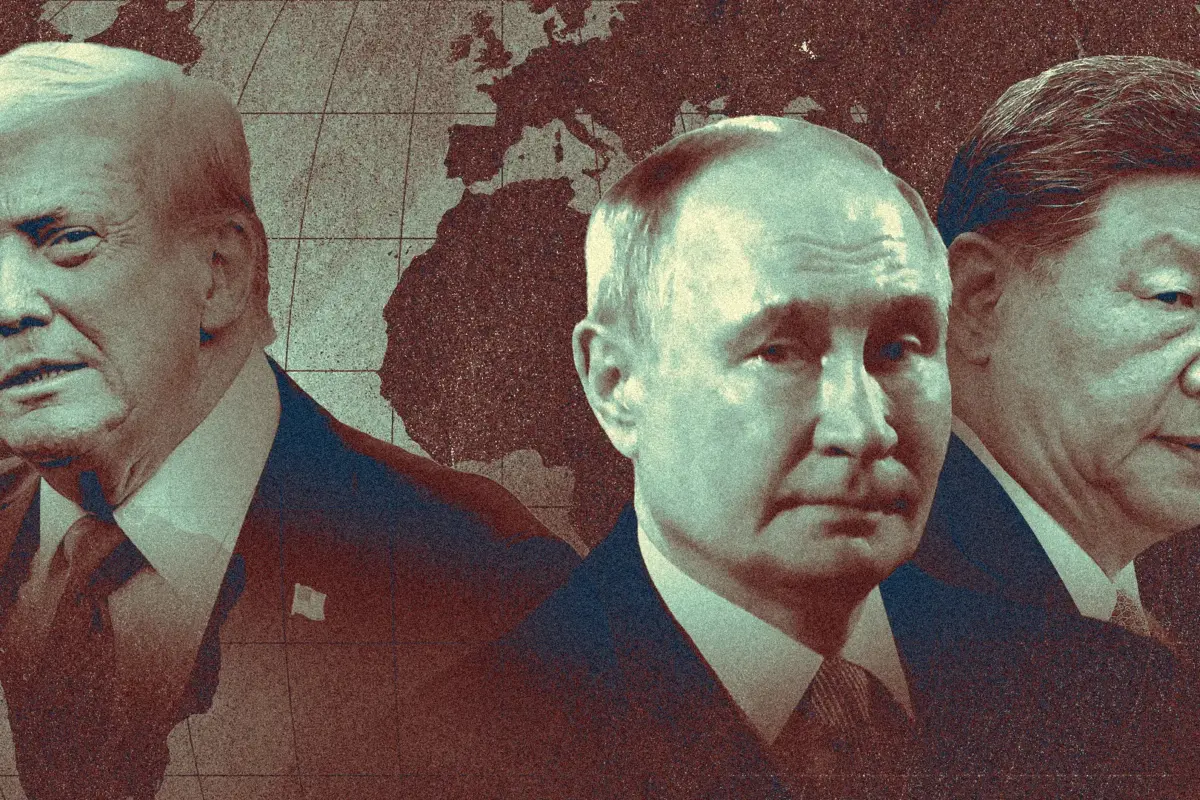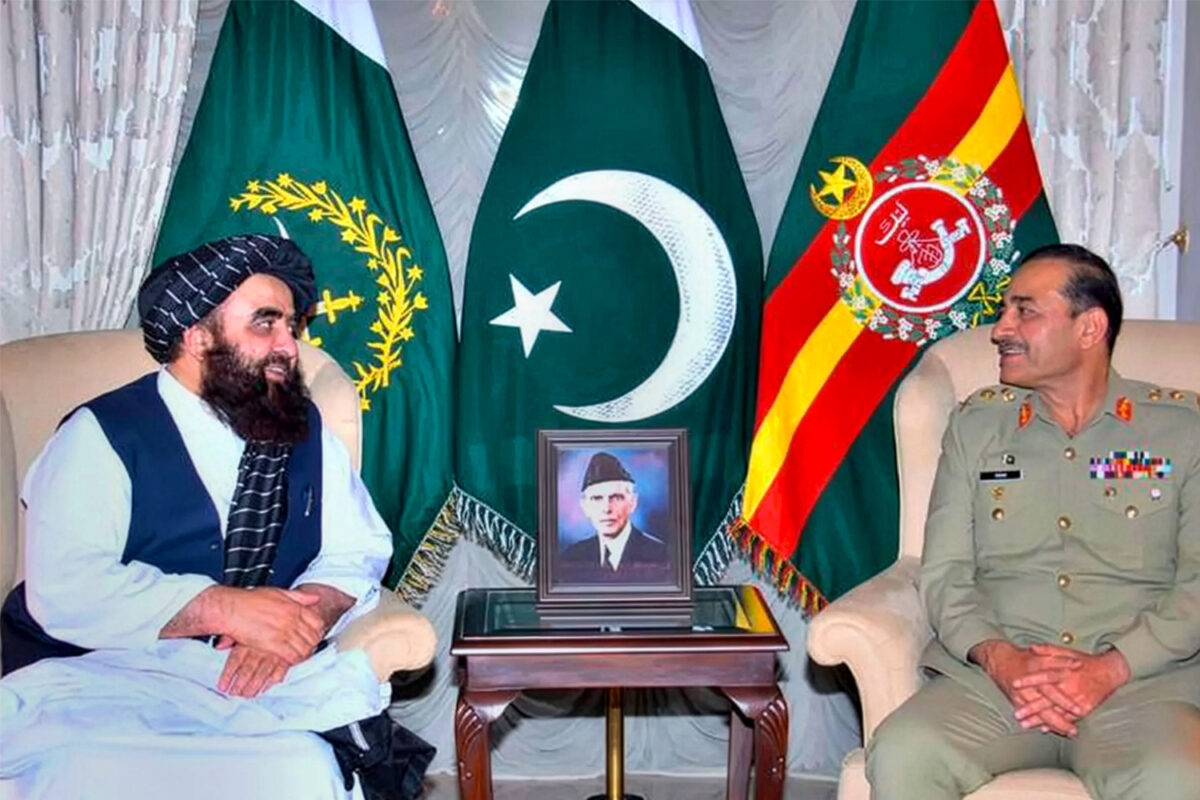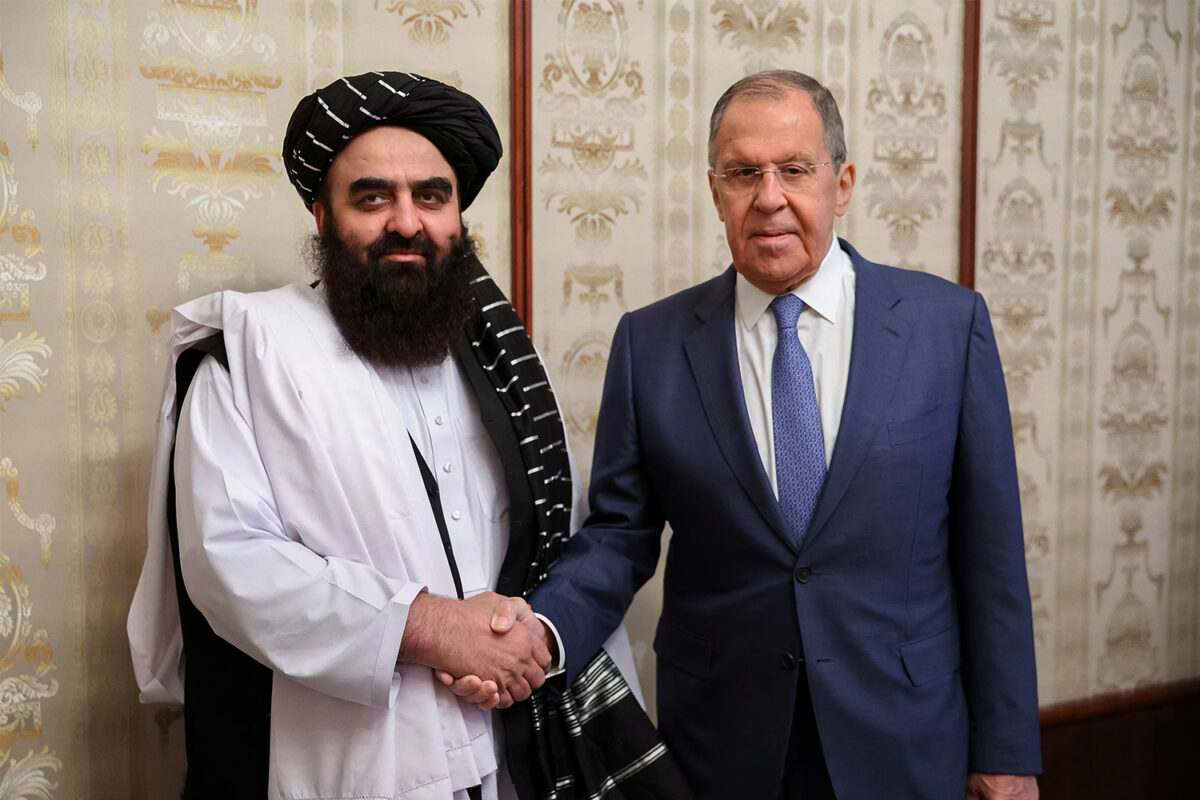Last week the game of thrones came to Pakistan. The former Prime Minister Imran Khan was in court to hear charges against him that range from corruption to sedition, only to be dramatically arrested by officers in riot gear who escorted him outside and bundled him into a vehicle. Khan’s supporters took to the streets, torching vehicles, attacking army bases as well as the homes of some commanders. Whilst the arrests and imprisonment of former Prime Ministers is not unprecedented in Pakistan, the actions against the army are. Imran Khan and the army for long had cordial relations but this has all come to a dramatic end. Much like HBO’s Game of Thrones fantasy drama it is not noble families fighting to capture the throne. In this case, Pakistan’s army top brass wants to maintain the status quo and Imran Khan wants the throne for himself.
Pakistan became a nation in 1947 when the British Empire partitioned India. The first decade of Pakistan’s existence turned into a disaster due to the first generation of leaders being somewhere between mediocre to incompetent. Pakistan faced immense challenges from the beginning as India got most of the British Empire’s industry, resources and equipment, so Pakistan was dealt a weak hand. Then up to 18 million people crossed both ways along the Radcliffe line, the Pakistan-India border. Pakistan’s leaders had no plan, strategy, policies or a constitution on how they planned to deal with these immense challenges. As a result, the first generation of Pakistan’s leaders blamed each other, with the first Prime Minister Liaquat Ali Khan even being assassinated in 1951.
An Army with a State
It was in this context the army was able to undertake its first coup, the first of many in 1958 with General Ayub Khan overthrowing President Iskander Mirza. The army cemented its role as the Cold War was beginning and Pakistan joined America’s containment strategy against the USSR. Military equipment as well as military and economic aid flowed into Pakistan making the military the real rulers of Pakistan. The army in time would expand its portfolio and build its economic interests from businesses to land and assets. Today the military of Pakistan is as much a corporation as it is a military. Due to this, the military has been in direct power, running the government for 31 of Pakistan’s 76 years of existence. But when not in government the military has been building politicians, shifting them around, using them to balance against others. When a civilian politician gets too ambitious or challenges the army’s place in Pakistan they can be removed or even hung as Zulfiqar Ali Bhutto was in 1979.
Today the military of Pakistan is as much a corporation as it is a military
The army turned to Imran Khan in the 2010s as Pakistan’s dynamics were changing and threatening the status quo. General Musharraf’s support of America’s war on terror and his banning of groups who were trying to liberate Kashmir didn’t just earn him the title of ‘Busharraf,’ but also brought into question the military’s credibility. The military began talks in the mid-2000s with Benazir Bhutto, ultimately leading to her husband Asif Ali Zardari becoming President from 2008 – 2013 and then Nawas Sharif returning to power from 2013. A whole generation of Pakistanis grew up during the war on terror and US invasion of Afghanistan and saw Musharraf, Zardari and Sharif as out of touch with their sentiments. The economy also suffered immensely as leaders such as Zardari was more interested in staying in the presidential house instead of working on national policy. When Nawaz Sharif took over from Zardari in 2013 things only got worse. The military top brass worried this new generation was getting more and more radical as the regime, economy and rulers were on the complete opposite end to their sentiments. It was in this context the military top brass turned to Imran Khan.
Status Quo Politics
Imran Khan had a successful cricketing career which culminated in him captaining the national team to the World Cup in 1992. Khan, a national hero, retired after this and focussed on building Pakistan’s first cancer hospital. In 1996 Khan set up Pakistan Tahreeq-i-insaf (PTI) – movement for justice, and made his first foray into national politics. But for the next two decades Khan would remain in the wilderness as his party struggled to win any seats in the national assembly, save Khan himself. Khan remained in opposition during the military regime of General Musharraf. Khan managed to win the provincial assembly of Khyber Pakhtunkhwa in 2013 and it was here he built his profile with his anti-American messaging and anti-corruption slogans. In an era of populist politics Khan adopted slogans of a medina state, welfare state, justice and rooting out corruption. At the time Pakistan was in economic chaos with politicians looting the country. But there were two key things that changed Khan’s fortunes, after being in the political wilderness for so long. The first was the army was looking for someone who could bring confidence back into the system, who had a clean background and was not from the usual political class. Imran Khan fitted this perfectly. As Khan’s party was really built around himself and his personality the military did what it always had done, it got a number of politicians to leave their parties and join Imran Khan’s. These two factors are what led Imran Khan to become Prime Minister in 2018. Ousting Nawas Sharif under corruption charges in 2017 also helped.
Red Lines
From 2018 to the end of 2021 Imran Khan had very good relations with the army. Khan didn’t stop praising the army, calling it a pillar of the country. By 2021 inflation was in double digits, economic growth had halved, and poverty was increasing. Whilst Iman Khan promoted slogans, when it came to ruling, he fell well short. When COVID-19 led to lock downs, this just made an already bad situation far worse. The army began to worry as many saw Imran Khan as the army’s man, who now was embarrassing them. But in October 2021 Imran Khan sealed his fate.
Whilst Iman Khan promoted slogans, when it came to ruling, he fell well short
General Bajwa reportedly sent a memo to the Prime Minister to announce a number of personnel changes in the army. This is something that has always taken place; the army chief determines promotions, retirements, transfers, then the civilian government announces these giving some image of democracy. Khan would however drag his feet as his handler Lieutenant General Faiz Hameed, who orchestrated his rise was being transferred from the head of the ISI – Pakistan spy agency, to become a Corp commander. For General Bajwa this was a red line that no civilian should even contemplate crossing. General Bajwa reached out to the Sharifs in the UK who would give a catalyst to the Pakistan Democratic Movement (PDM) which was a coalition of anti-Imran Khan politicians who were looking for power. This culminated in the vote of no confidence in April 2022 when many of the politicians who joined Imran Khan and helped him to power, abandoned him.
Biting the Hand that Feeds You
Imran Khan, much like the noble families in the Game of Thrones drama, refused to go down quietly. Khan began a campaign of speeches, marches and protests that his removal was a foreign conspiracy, hatched by the US in collusion with General Bajwa. In a country with anti-American sentiment so high this is all possible. Khan also promoted the idea that the old thieves were back in power, who had for long looted the country. When General Bajwa said the army would remain neutral, Khan began to attack him personally. For over three years the military top brass and Khan had close and cordial relations, now this is in the past. Imran Khan, much like Prince Harry in the UK, is now biting the hand that fed him. When Gen Bajwa’s chosen successor Asim Munir became army chief in November 2022, Khan continued with the personal onslaught against him.
Imran Khan, much like Prince Harry in the UK, is now biting the hand that fed him
Khan has calculated with public opinion on his side, with the government that replaced him struggling with the economy and with a new army general yet to prove himself, that he is in a position of strength rather than a position of weakness. Gen Bajwa and it would seem Gen Munir have both miscalculated the support Imran Khan has and assumed they could, like the army always has, move the chess pieces around to their liking. The army is trying to use the different institutions in Pakistan from the judiciary to the media to undermine Iman Khan. But Imran Khan has successfully shaped public opinion against the army, who Khan accuses of supporting the government that is full of thieves. This is uncharted territory for the military that always had public opinion on its side. The military now is facing a creation of its own designs who refuses to go down without a fight.
There are reports of dissent within the military as many also see Imran Khan as good for the national image and are not on the same page as the military top brass. If the army’s cohesion is affected by this crisis, then this really would be uncharted waters. Khan is now calling for a number of freedom marches as he faces various court cases. The Supreme Court ruling that it was illegal for the paramilitary forces to arrest Khan further strengthens Khan’s position. In the Game of Thrones drama alliances and deals was how political crises were dealt with. Here it remains to be seen if a deal can be made between the two warring parties who want to sit atop Pakistan’s throne.




